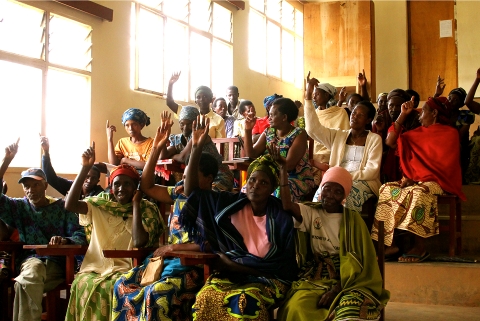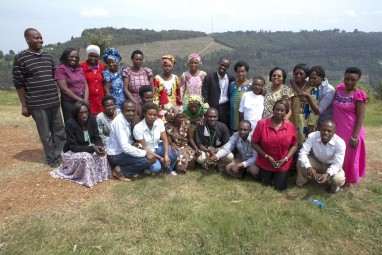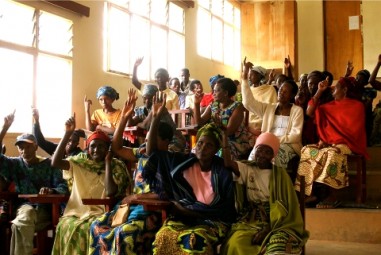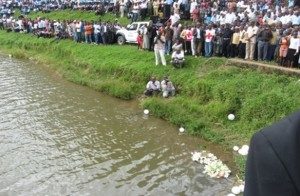
The Widowed Survivors Empowerment Project (WSEP) is a wraparound project funded by UKaid from the Department for International Development that provides holistic support to widowed survivors of the Rwandan genocide. By securing ownership of land and property, developing viable livelihoods, and empowering them to access available health services, WSEP will reduce the extreme poverty of widows and empower them to integrate into Rwandan society.
Since its initiation in 2012, WSEP has reached over 24,536 individuals, operating in fifteen of the thirty districts in Rwanda. Built on a foundation of livelihood development, WSEP fosters self reliance in widows through the establishment of marketable businesses.
One woman exclaimed, “Before, I was alone. I never thought about the future of my life. After joining this group, I look forward because I share life experience with others. I also know how to save and how to get a loan.”
WSEP addresses issues of health with counselling to vulnerable members, and provides hardship grants to elderly widows. Participants are sensitised on their rights and are better able to access justice through documentation and assistance of legal cases.
In its first year, WSEP has had a transformative affect on vulnerable widows and their families, reducing sytmptoms of trauma, isolation and legal issues, and generating an income that can and will be sustained.
Peruth Nyanzira in Rulindo district exclaimed, “After the genocide, we thought that life was impossible. But now that we are a part of this project, we see that life is possible.”
The three key achievements that we note to date of the project are:
1. Mapping of AVEGA members in the Southern, Northern and Western Provinces through a baseline survey conducted at the beginning of the project. This enabled AVEGA to identify the needs of its members in the respective regions, recognise gaps in terms of service delivery, and highlight opportunities for supplementary support and partnerships available to better improve the lives of beneficiaries through two new offices that AVEGA established in the Southern and Northern Provinces.

2. WSEP has built the capacity of AVEGA through the recruitment and mobilisation of a network of grassroots community volunteers operating at various levels (cell, sector and district) to deliver the project outcomes. In this respect AVEGA has recruited an all-female cohort of 395 volunteers of which 174 are animateur psychosocial volunteers, 139 are paralegals and 82 are community development volunteers, all of which support AVEGA’s staff of CDWs, IGA officers and assistants in mobilising, advising and supporting project beneficiaries.

3. WSEP’s greatest achievement is in the livelihood development of its members. AVEGA has been able to form IGA groups comprising 2,632 widows (2,603 women and 29 men) out of which 1,574 received livelihood development training, resulting in 423 members submitting proposals requesting for loans amounting to 50,036,977 Rwf (around £50,000). The livelihood development training has prompted group collaboration and cooperative formation, resulting in enhanced group cohesion, reduced isolation and loneliness, and collective financial security among members for the establishment of new enterprises.

